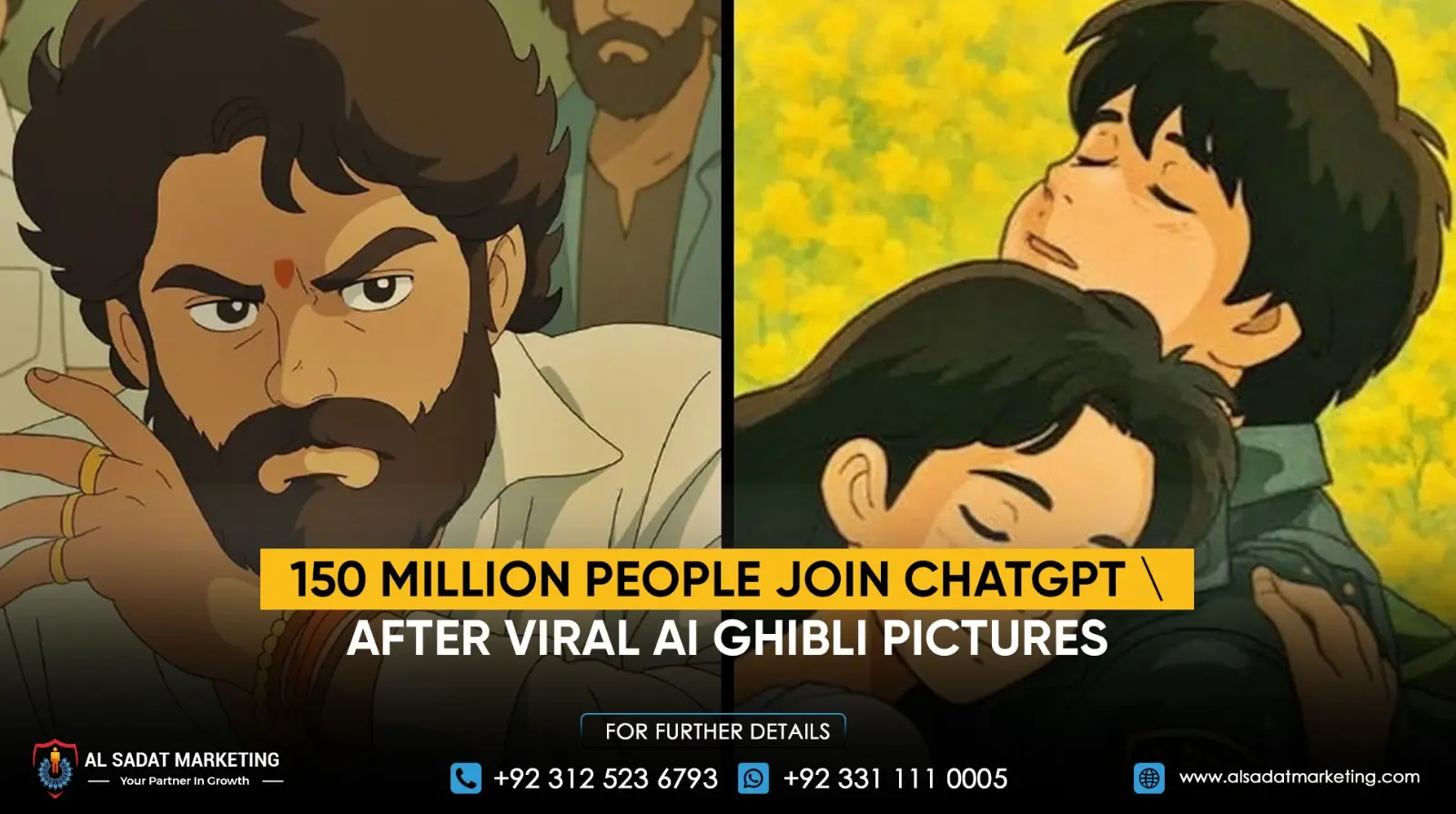A viral trend featuring AI-generated artwork in the iconic style of Studio Ghibli has catapulted ChatGPT into record-breaking territory, prompting both celebration and growing concerns within the tech and creative communities.
In recent weeks, social media platforms have been flooded with AI-generated images mimicking the hand-drawn charm of Ghibli classics like Spirited Away and My Neighbor Totoro. This surge of creative interest has led to an unprecedented spike in usage of OpenAI’s ChatGPT platform, which offers image-generation capabilities powered by its advanced models.
According to analytics firm Similarweb, ChatGPT’s weekly active users soared past 150 million—its highest number this year. OpenAI CEO Sam Altman revealed that the platform saw one million new users in just a single hour, a growth rate that dwarfs the company’s early milestones.
Also Read: Understanding the Legal Process of Buying Property in Pakistan
That momentum translated directly to mobile success. Data from SensorTower shows that the ChatGPT app broke multiple records last week: global downloads jumped 11%, weekly active users rose 5%, and in-app purchase revenue climbed by 6%.
But the boom hasn’t come without challenges. The massive influx of users strained OpenAI’s infrastructure, causing performance slowdowns and intermittent outages. In response, the company placed temporary limits on its image-generation tools to maintain stability, while also hinting at possible delays for upcoming features.
As the Ghibli-style images continue to circulate, questions around legality have started to emerge. While copyright laws typically protect specific works rather than broader artistic styles, the legal gray area surrounding AI-generated content remains murky. Attorney Evan Brown of Neal & McDevitt noted, “The legal implications of AI-generated images imitating Studio Ghibli’s unique style are still unclear.”
Adding to the conversation, a 2016 interview with Ghibli co-founder Hayao Miyazaki has resurfaced, in which the legendary filmmaker criticized AI-generated visuals as “utterly disgusting,” voicing strong opposition to incorporating such technology into his work.
OpenAI has not commented on whether its models were trained using Ghibli-style images, nor has it directly addressed concerns around copyright or training data transparency.
As digital creativity surges and AI tools become more accessible, the intersection of technology, art, and intellectual property is proving to be both a fertile ground for innovation—and a minefield of legal and ethical debate.










